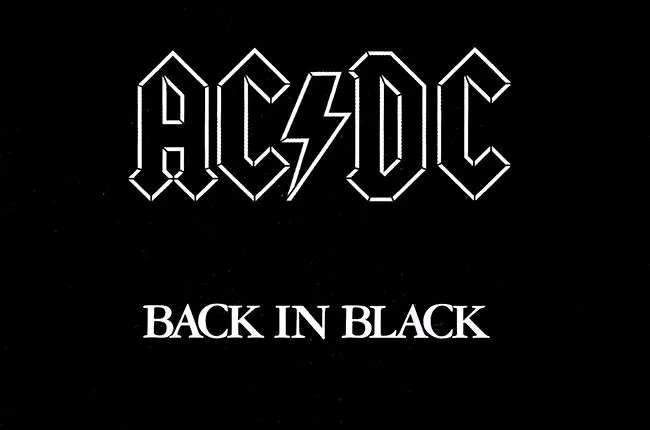“Back in Black” Becomes Second Best-Selling Album in History: What If Bon Scott Had Sung It?
AC/DC’s Back in Black has officially been recognized as the second best-selling album in music history, with global sales surpassing 55 million copies, second only to Michael Jackson’s Thriller. This milestone cements the 1980 album not just as a hard rock triumph, but as a cultural landmark. However, it’s impossible to talk about Back in Black without acknowledging the haunting “what if” that surrounds it: What if Bon Scott had been the voice behind the record?
Back in Black was born from tragedy. In February 1980, just months before recording was set to begin, Bon Scott — AC/DC’s original frontman and wild-eyed lyricist — died from alcohol poisoning after a night out in London. He was only 33. At the time, AC/DC was already on the brink of global superstardom, having built a loyal following with albums like High Voltage and Highway to Hell. The loss of Scott was not only emotionally devastating for the band but a major threat to their momentum.
Instead of folding, the band made a bold and historic move. They recruited English singer Brian Johnson, whose raspy, full-throttle vocals immediately clicked with the band’s raw energy and stripped-down sound. The resulting album, Back in Black, was both a tribute to Scott and a reintroduction of AC/DC to the world. With iconic tracks like “Hells Bells,” “You Shook Me All Night Long,” and the thunderous title track, the album rocketed to the top of the charts and never looked back.
But would Back in Black have sounded the same with Bon Scott behind the mic? Musically, the riffs — courtesy of brothers Angus and Malcolm Young — may have remained largely intact. The band’s sonic foundation didn’t waver between vocalists. However, Scott’s lyrical style was very different from what ended up on Back in Black. Known for his mischievous wit and cheeky wordplay, Scott’s lyrics were laced with innuendo, rebellion, and a kind of roguish charm. Johnson, on the other hand, brought a more aggressive, anthemic energy to the songs.
It’s possible that with Scott, the tone of Back in Black might have been less somber and more irreverent. Songs like “Have a Drink on Me” might have carried a darker edge in light of his death, while others, like “Shoot to Thrill,” could have leaned even more into Scott’s flair for storytelling. Yet, part of Back in Black’s mystique lies in its sense of loss — it’s a mourning record disguised as a party. Johnson’s unfamiliarity with the band’s grief may have allowed him to channel pure rock bravado, rather than sorrow.
In many ways, Back in Black exists in a parallel universe from where Scott left off. It’s a product of heartbreak and rebirth. While fans will forever debate how Scott might have handled the songs, the album’s success speaks for itself. Brian Johnson stepped into an impossible role and helped craft a rock masterpiece that paid homage to the past while forging a powerful future.
Had Bon Scott lived to record it, Back in Black would have been different — maybe rawer, maybe funnier, maybe more chaotic. But would it have become the second biggest-selling album in history? That’s a question that will forever echo through rock and roll’s corridors.
